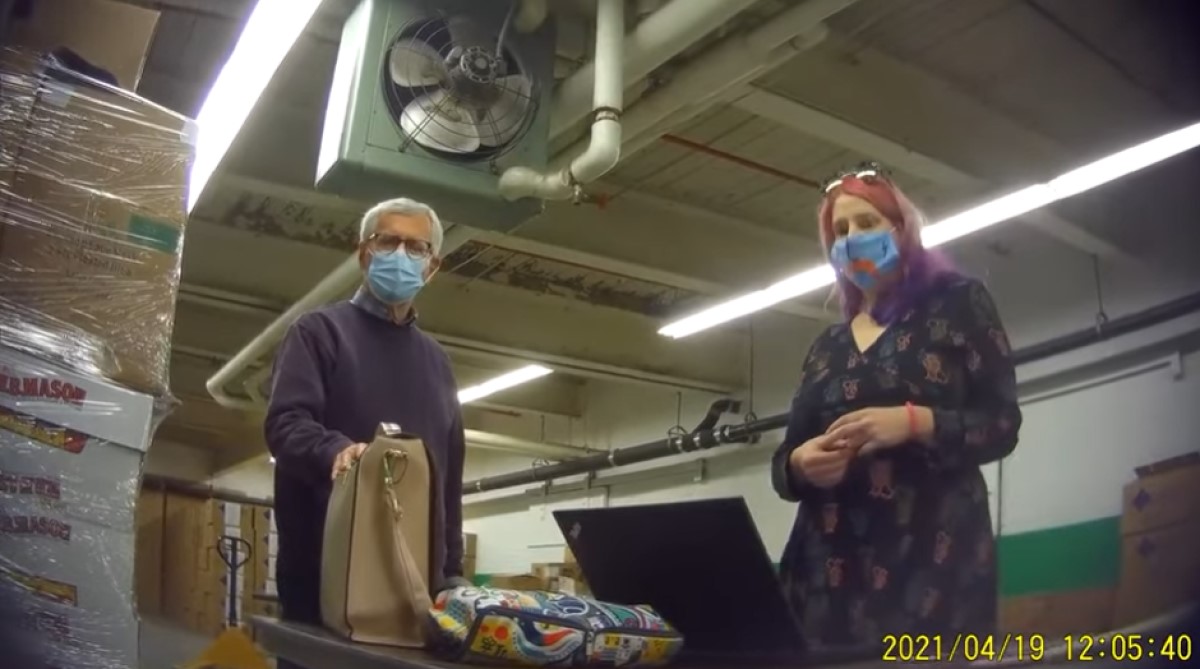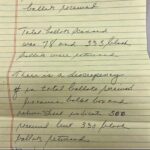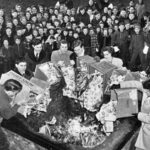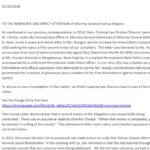According to a new whistleblower video obtained by The Federalist, 80 percent of Delaware County, Pennsylvania precincts lacked a valid chain of custody for the provisional ballots cast in the November 2020 election.
This video and two others just obtained by The Federalist provide further evidence that, while officials continue to deny that irregularities occurred during the last presidential election, there were widespread violations of the election code in the large Pennsylvania county, followed by efforts to cover up those problems.
Regina Miller, a contract worker assisting Delaware County officials, secretly filmed the videos as she helped election employees gather material in response to a “Right to Know Request” that sought documentation to confirm the election results certified by the county.
In one of the several most-recent videos The Federalist obtained from someone familiar with the situation, two employees are speaking. The first woman states, “This is what a provisional bag looks like.” As she continues to explain the process for safeguarding provisional ballots following the close of polls, she notes, “And what we currently do not have is a valid chain of custody for the provisional ballots.”
The shocked whistleblower repeats the claim as a question: “So are you saying we never had a chain of custody?” The other woman replies that only “20 percent of precincts have locked the blue bag in the past,” a reference to the bag in which provisional ballots are to be stored and safeguarded.
“Personally, I think that this is happening in every county in Pennsylvania,” the Delaware County election official notes. “We’re working on this antiquated law,” she explains, “on top of the new law,” an apparent reference to changes instituted shortly before the 2020 election.
A second video shared with The Federalist on Friday captures a discussion between Delaware County poll worker coordinator Christina Iacono and Tom Gallagher, an attorney for Delaware County, about “V drives.” Those are removable drives that contain the election results obtained from the county’s individual voting machines.
This video begins with the whistleblower saying she was concerned with the way the V drives were returned to the county. Gallagher then detailed what happened, with the hidden camera capturing him saying the county employee “dumped them in a bag, put them in a box,” and “puts it on the top of the hood of her car.”
The election worker then started rattling off problems, according to Gallagher. “She goes . . . we don’t have anything for Chester 11,” and another precinct “is missing.” Gallagher mimics what the employee, identified in the video merely as Loureen, said as she passed the box of V drives and other election material to the county attorney.
“Do you have a piece of paper with that on it?” Gallagher explains he asked her. She didn’t, Gallagher continued, noting she said, “No, that’s why I’m telling it to you.” She also didn’t have an inventory or anything showing what V drive she was providing and what was missing. Gallagher added that he left her a message but didn’t expect any response.
Gallagher’s discussion of the missing V drive provides further context to The Federalist’s earlier reporting on another whistleblower video that captured Delaware County election officials plotting to recreate missing election data from the November 2020 contest.
According to a source familiar with the video, the clip captured James Savage, who served as the voting machine warehouse supervisor during the November 2020 election, discussing a Right to Know Request with another election worker. That request was served on Delaware County after the presidential election and sought documentation confirming the vote totals.
In the video, Savage inquired of another individual off-camera about “recreating data.” The second election official offers his suggested approach, with them recreating results for “these jokers,” and “then create another set for the next set of jokers” — an apparent reference to the citizens seeking the confirmation of the election results under the Right-to-Know request — “but we cut it up and then we create a permanent record,” he explains.
“Here you go, here you go,” the election official says, apparently explaining how they would then provide the recreated data to individuals who filed the Right To Know requests. The individual, who was blocked from view on the camera, then continues, “We scan those cut, copied sheets in.”
Savage continues, “The first part has a lot of work, but it might save us work in the long run, if it’s gonna be a drip, drip, drip.” The duo then discuss the process more, with Savage asking about whether they would go to every machine and put in a clean V drive. The off-camera election worker appears to agree with that approach.
A third just-obtained video now provides evidence suggesting Delaware County officials later executed that plan. That video begins with the whistleblower talking about missing V drives and the fact that “some had to be recreated.”
A man off-camera, identified for The Federalist by a person familiar with the videos as Savage, then notes that “John” “came here with a V drive.” The off-camera man then continues, “I don’t know what the process was ‘cause I wasn’t [there] … I put one of my staff with him to get the machine out and open it up for em’ and then he did everything else.”
“He was able to pull the data from the scanner onto to that V-drive,” the individual identified as Savage explained. The whistleblower then interjected to ask about the “machine tapes” and whether they needed to reprint those to go with the V drives, but no one seemed to know.
However, with the discussion moving on to the missing “machine tapes,” the video unwittingly exposes yet another problem in Delaware County: missing machine tapes that should have existed to verify the voting “return sheets” given the county after the November 2020 election.
According to sources familiar with the video, Delaware County election official James Ziegelhoffer is seen on tape explaining that “most people produced” the tape, referring to a paper printout from the voting machines. Some didn’t, however, Ziegelhoffer added, causing the whistleblower to ask, “What do you do with those return sheets?” a reference to the document individual precincts remitted to the county with a tally of the November 2020 poll results.
Ziegelhoffer explained that “the people that never came” with the tapes, “that was reported to the DA.” After that, Ziegelhoffer seemed to say, he didn’t know what happened.
The Federalist asked Delaware County District Attorney Jack Stollsteimer whether his office launched an investigation into those referrals and if so, the results of the investigation, but received no response.
Private citizens of Delaware County also seemed to have no luck getting satisfactory answers from government officials, leading several residents to file a sprawling lawsuit in mid-November 2021 against former Secretary of State Kathy Boockvar, Delaware County, the Delaware County Board of Elections, and more than a dozen individual election officials.
Given the pending litigation, Adrienne Marofsky, the public relations director for Delaware County, previously told The Federalist the county is not responding to press questions. However, Marofsky then added that “the County is confident that the elections in 2020 and 2021 were conducted fairly and fully complied with state and federal laws.”
The county’s claim conflicts with on-camera statements made by Delaware County, Pennsylvania’s Christina Perrone, who told fellow election-related workers during a Zoom meeting after the November 2020 election that this time—referring to the upcoming elections—“we’re going to actually follow the law fully.”
At least one member of the Delaware County Council is likewise continuing to deny problems with the November 2020 election that the videos obtained by The Federalist seem to establish.
Notwithstanding the whistleblower videos capturing election workers apparently discussing the missing V drives, conversing on how to recreate the data, and then explaining that new V drives were created, at a January 19, 2022, county council meeting, one member of the council, identified on the tape as Christine Reuther, declared, “There were no missing drives. It’s been debunked. It’s been before the board of elections. It’s been addressed in court. There’s been testimony about it. There were no missing drives.”
Reuther then explained it was such misinformation being spread in the comments on Facebook that led her to believe that the county should remove the ability for public comment on its Facebook posts.
“We have a circumstance where a lot of research has shown that the way misinformation spreads, or one of the ways that misinformation spreads through social media is the hijacking of trusted websites,” Reuther said. “I can tell you that the county’s comments on its Facebook page were hijacked,” the council member continued, noting that one area in which “misinformation was spread were about elections.” She then stated unequivocally, “There were no missing drives.”
The Federalist asked Reuther whether her position was “that the drives were never missing or that they were ‘not missing’ because they were recreated.” Alternatively, did Reuther believe “those whistleblower videos are altered”? The Federalist inquired. Reuther did not respond to these questions.
While these latest videos provide more evidence of significant issues with the November 2020 election in Delaware County, the totality of the whistleblower tapes has two broader implications: First, the problems captured on video suggest systemic issues with American elections. Second, without whistleblowers filming the behind-the-scenes chaos, the public would remain blissfully ignorant of the apparent banana republic-like state of our electoral process.
Even with the videos, public officials continue to brand the evidence “misinformation.” Americans need to wake up—and soon.
Margot Cleveland is a senior contributor to The Federalist. She is also a contributor to National Review Online, the Washington Examiner, Aleteia, and Townhall.com, and has been published in the Wall Street Journal and USA Today.
Cleveland is a lawyer and a graduate of the Notre Dame Law School, where she earned the Hoynes Prize—the law school’s highest honor. She later served for nearly 25 years as a permanent law clerk for a federal appellate judge on the Seventh Circuit Court of Appeals. Cleveland is a former full-time university faculty member and now teaches as an adjunct from time to time.
As a stay-at-home homeschooling mom of a young son with cystic fibrosis, Cleveland frequently writes on cultural issues related to parenting and special-needs children. Cleveland is on Twitter at @ProfMJCleveland. The views expressed here are those of Cleveland in her private capacity.








